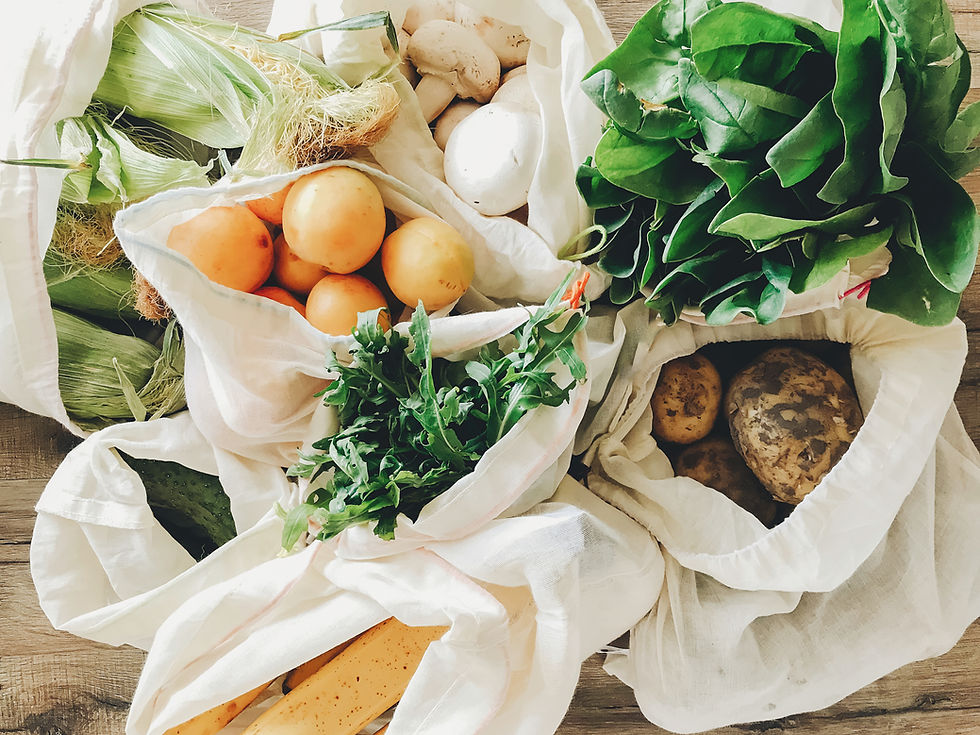Organic Foods- Why I eat it and why you should too!
- drnicolend

- May 9, 2023
- 3 min read

Now, I know what you're thinking: "Organic? That's just a fancy buzzword for expensive food, right?"
Honestly, that's what I thought too at first.
Eating organic can actually have a huge impact on your health, especially if you're dealing with autoimmune issues.
First of all, let's talk about what "organic" really means.
The Environmental Protection Agency (EPA) has this definition "organically grown" food is food grown and processed using no synthetic fertilizers or pesticides. Pesticides derived from natural sources (such as biological pesticides) may be used in producing organically grown food.”
Organic foods can still be exposed to naturally-derived pesticides and glyphosate, but they have 4 times less than conventional foods. It’s hard to avoid glyphosate in general, which is another reason why you want to eat organic.
Glyphosate-based herbicides are sprayed on genetically modified organisms (GMO) crops which are resistant to them and a lot are sprayed on them. The tricky thing is non-GMO foods could have more glyphosate on it than GMO foods!
“The highest levels of glyphosate have consistently been found in non-GMO foods derived from wheat, oats, and legumes.”
The problem with glyphosate is that it has been declared a probable carcinogen, it ruins your microbiome by killing beneficial bacteria, likely contributing to increased fungal infections (like Candida), chelating minerals (like iron and zinc), and can lead to decrease of glutathione (the most important antioxidant in your body).
Glyphosate affects a specific pathway of all microbes which kills them and beneficial microbes are more sensitive to this. Your microbiome also protects your gut lining from inflammation which can break down your gut barrier. This is called a “leaky gut.”
And leaky gut is a major contributor to the development & worsening of autoimmune diseases like Hashimoto’s.
So look for foods that are labeled “certified organic.” This USDA regulates these foods and separates them into 3 categories:
Crops (Produce):
Land must have had no prohibited substances applied to it for at least 3 years before the harvest of an organic crop.
Organic seed must be used
The use of GMO seeds, ionizing radiation and sewage sludge is prohibited.
Livestock and Poultry
Livestock and poultry standards apply to animals used for meat, milk, eggs, and other animal products sold, labeled, or represented as organic. Some requirements include:
They are required to have access to the outdoors year round
Fed 100% organic feed
Not given any antibiotics or hormones
Multi-Ingredient Products
Products sold, labeled, or represented as organic must have at least 95 percent certified organic content.
Products sold, labeled, or represented as “made with” organic must have at least 70 percent certified organic content. The USDA organic seal may not be used on these products.
Products containing less than 70 percent organic content may identify specific ingredients as organic in the ingredients list.
But it's not just about what organic foods don't contain. It's also about what they do contain.
Organic foods are often richer in nutrients than their conventionally grown counterparts. That's because they're grown in healthier soil that's been treated with natural fertilizers and enriched with organic matter. And when your body is already dealing with an autoimmune disorder, every little bit of nutrition helps.
Now, I know what some of you are thinking: "But I can't afford to eat organic!" And I get it.
Organic foods can be more expensive than conventionally grown foods, but there are ways to make it work.
This is what I did, I started small by swapping out just a few items I was eating for organic versions. I looked at the Dirty Dozen from the Environmental Working Group and started with those foods first. I also started to eat organic grass fed/finished meats too and this is the way I still eat today!
You can also look for local farmers markets or co-ops where you can buy organic produce at a lower cost. Local farmers or co-ops are the best place to get your food if you can!
So, why should you consider switching to an organic diet if you have an autoimmune disorder like Hashimoto’s? Mainly because it can make a real difference in how you feel and your healing. Eating organic can help reduce inflammation, reduce toxins that can trigger flares, help heal your gut, and improve your overall health. And when you're dealing with an autoimmune disorder, every little bit counts to get your body and immune system work its best. So keep toxins away as much as you can.
Go ahead and give organic a try. Your body will thank you!




Comments